[ad_1]
The announcement that the Public Investment Fund of the Kingdom of Saudi Arabia is part of a new ‘Electric 360’ initiative that encompasses Formula E, Extreme E and the nascent E1 Electric boat series should come as no major surprise.
Since 2018, when a decade-long deal with Formula E for Saudi Arabia to host an E-Prix in Diriyah on the outskirts of the capital Riyadh was announced, ties between the Saudi government and government-owned entities have strengthened innumerably.
Formula E has a partnership with Saudi Airlines – Saudia – and the series’ chairman Alejandro Agag has contacts throughout the country. He has been instrumental in facilitating deals, such as NEOM – the PIF-owned urban development project – laying the groundwork for the former Mercedes EQ team to metamorphose into McLaren in 2022.
Such is Agag’s influence that he enjoys the close acquaintance of Mohammed bin Salman, the crown prince and prime minister, who has taken personal governance of his country’s expansion into global sports events and investment in sporting structures. MBS – as he is universally known to the Western world – is a regular attendee of at least one of the Diriyah E-Prixs each year.
Electric 360 will, according to Monday’s official communication, “underscore the power of electric motorsports to drive technological innovation, and revolutionise sustainable transport and future mobility”.
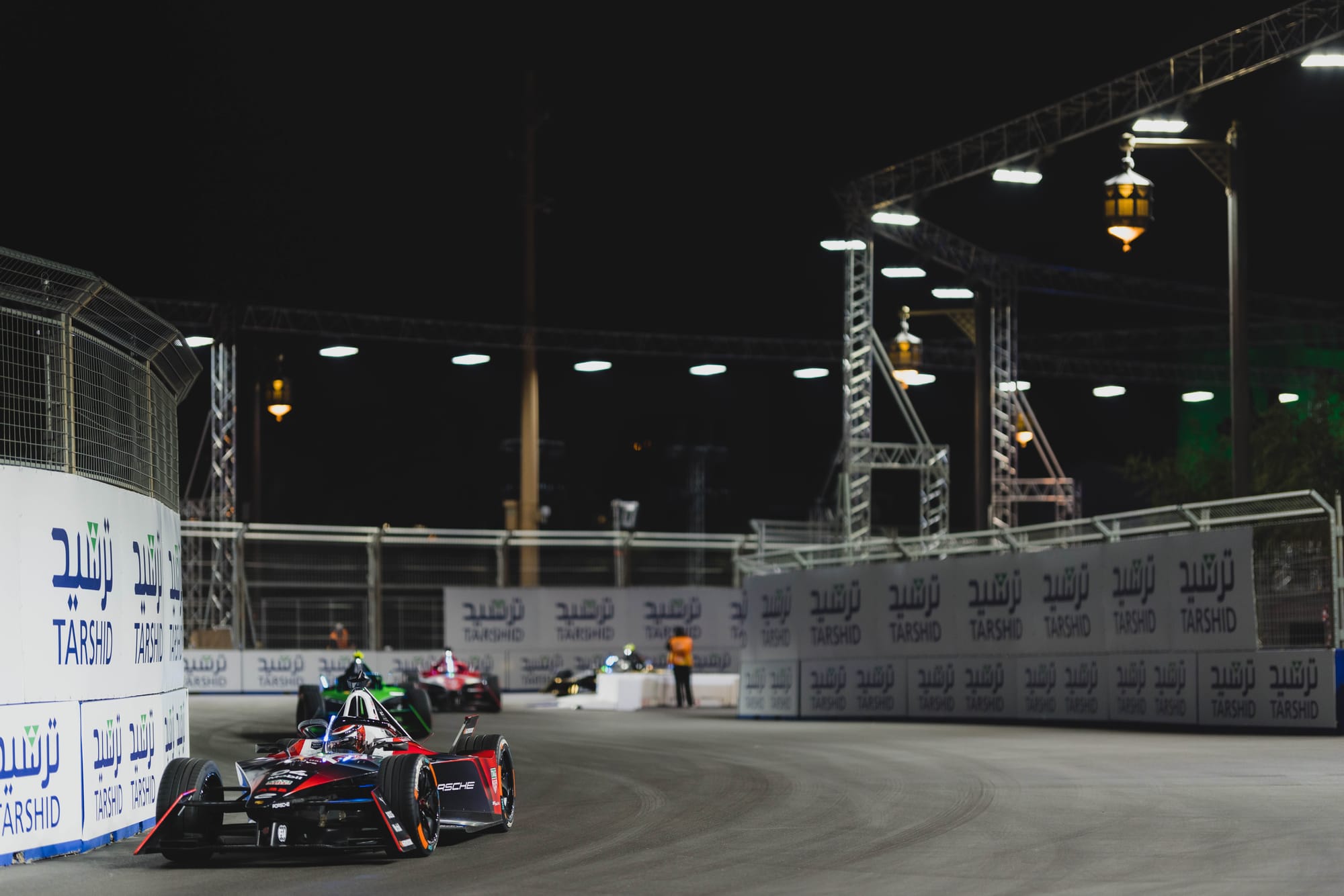
Agag called it a “one-of-a-kind partnership” that would take each of the series “to the next level” as test beds for transport technology.
“PIF will not only play a strategic role in helping us leverage our unique technological platforms, but also foster global collaboration, education and skills development for the next generation worldwide,” he added.
That focus on each series’ technological advancements, rather than the competition side, was emphasised in the Electric 360 announcement too – though PIF’s head of corporate brand Mohamed AlSayyad said the project would also “redefine electric sport and supercharge its growth”.
“At PIF, we believe in the power of partnerships, investing in innovative collaborations as part of our focus on ‘investing in better’. These partnerships will enhance the quality of life for people, provide opportunities for the communities we serve, and help continue our work as a catalyst for transformation,” said AlSayyad.
While this is framed as a partnership and not an investment, where it might lead need not detain one’s imagination too much.
Engagement followed by investment. That has been the staple mantra of how Saudi Arabia’s astonishingly bold sports business and marketing strategy of promoting itself to the world has manifested. Its growth in global sport has arguably been the headline story of 21st century sports business so far, and it doesn’t appear to be losing momentum or speed just now.
In 2018, Agag, Formula E’s visionary founder who also saved it from extinction after a handful of races by helping to secure the Liberty Global shareholding, made an audacious bid to wrest control of his baby back. It failed.
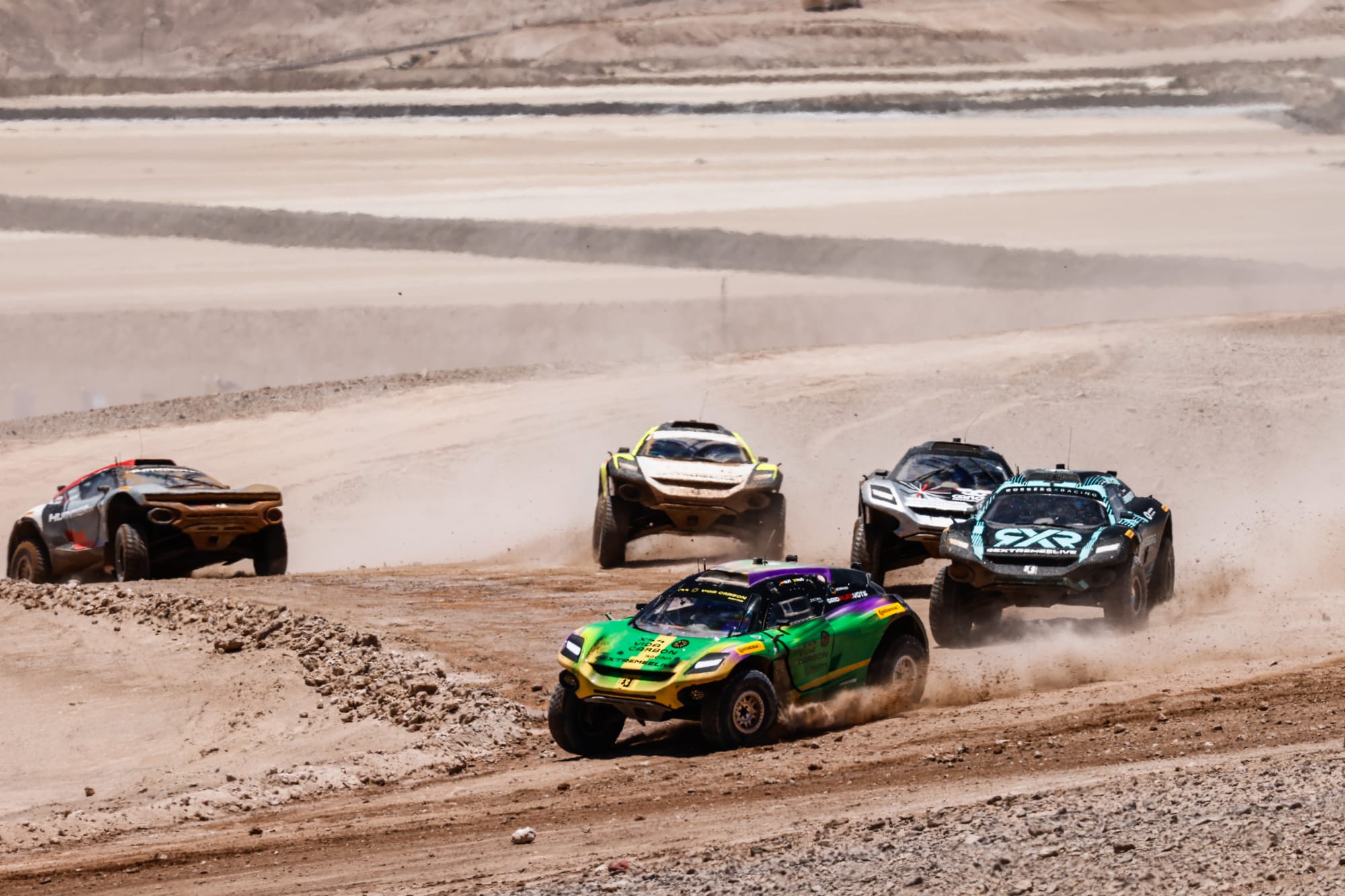
Since that time, he has gone on to build Extreme E, E1 and also scope out the possibilities of a hydrogen network in motorsport too. But there seems also to be an undimmed compulsion to square the circle and, one day, for Formula E’s father to properly return to his creation.
He would need strong investment for that and there are many who believe that the Electric 360 announcement could be an initial phase to pursuing something approaching control again, something which Agag effectively relinquished when Liberty saved Formula E from a commercial abyss in the early months of 2015.
Whether it plays out like that will likely be known in the next 18-24 months, as that is believed to be when Liberty Global might, as one executive told The Race, on condition of anonymity, “back it or whack it”.
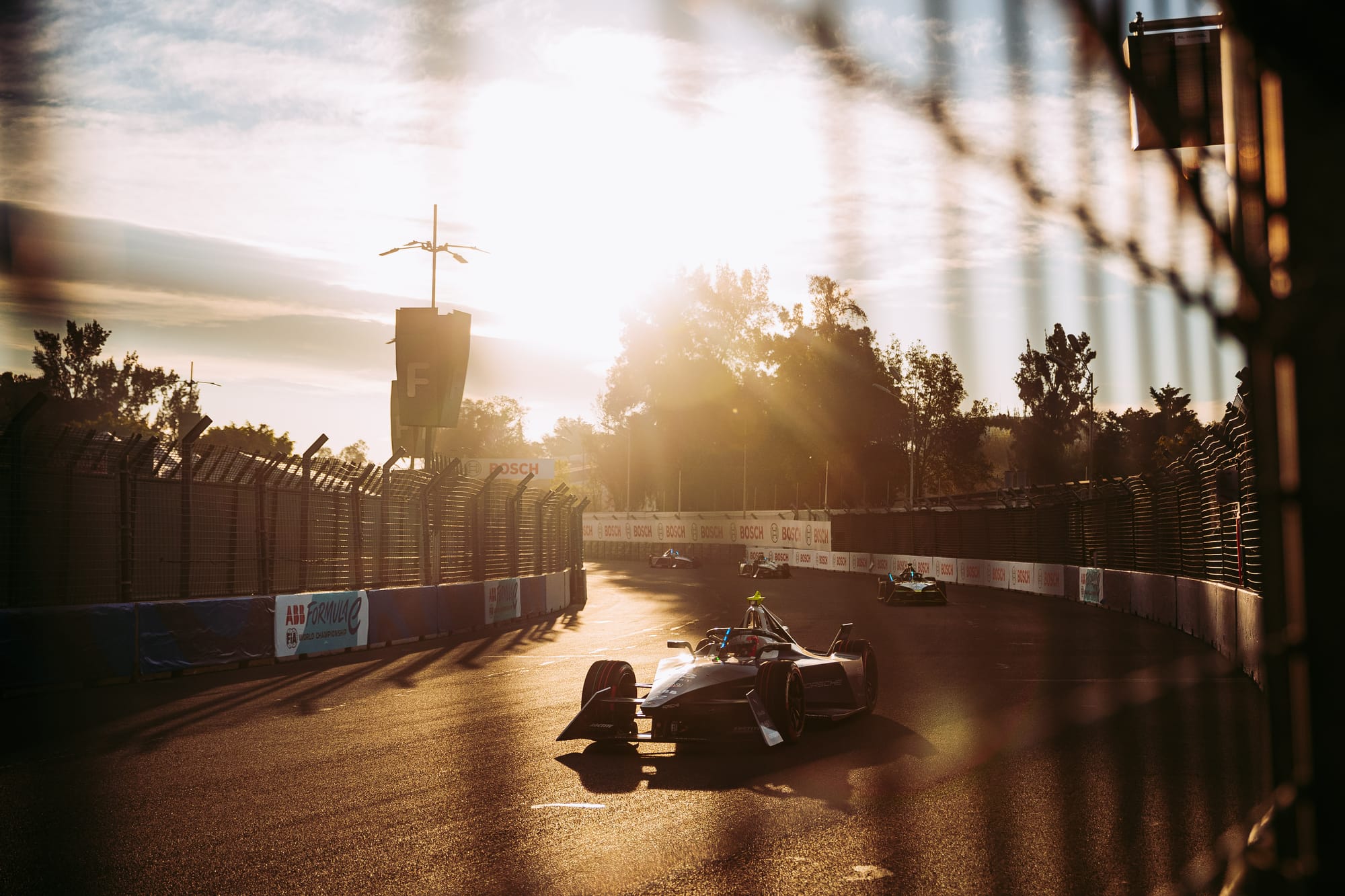
“By the end of 2025 some big decisions will probably have to be made about the asset, meaning that the next 18 months could be the most important of the last decade in a way,” they added.
Whatever happens, Formula E has got itself into a strong position with the PIF announcement because the ascent of sporting spectacles via investment in Saudi Arabia is expansive.
Last September, the World Weightlifting Championships came to Riyadh, and a month later the World Combat Games and a stage of the equestrian Global Champions Tour were delivered.
Amid the north‑west mountains of the Kingdom, work accelerates on the building of ski and winter sport facilities in the region of Trojena, in preparation for the 2029 Asian Winter Games. Trojena is one of several regions that will encompass the giant giga-project of NEOM and will boast an incredible 35km of ski slopes amid the Jabal al-Lawz peak.
But it is football that has hit the headlines in the past 12 months with a colossal investment in attracting big names such as Cristiano Ronaldo, Karim Benzema, Roberto Firmino, N’Golo Kante, and (briefly) Jordan Henderson to Saudi Arabia’s own league.
It’s worked the other way too. Newcastle United was bought by a consortium of Saudi businesses that included the PIF. Its chairman, Yasir bin Othman Al-Rumayyan, is close to Agag too, and said this when the E1 series was announced in 2021: “This exciting investment in a new premier sport format aligns with our strategy to enable innovation globally and unlock new industries, as well as build strategic partnerships with real value [to] add to Saudi Arabia.”
The partnership with E1 would “help drive the development of innovative sustainable technology, which in turn positions Saudi as an enabler in the industries of the future and the creation of new opportunities”, Al-Rumayyan added.
Within this is another concept: Vision 2030.
This was devised in 2016, and is an initiative that aims to build “a strong, thriving and stable Saudi Arabia that provides opportunity for all”, according to Crown Prince Bin Salman in his official foreword. Vision 2030 has a leading objective of aiming to shift the kingdom’s income from a reliance on oil revenues. Within this are 13 “realisation” programmes, one of which is “quality of life”.
Two others are “promoting sports activities in the community” and “achieving excellence in several sports regionally and internationally”. Saudi Arabia didn’t just go big, it went ultra-thorough.
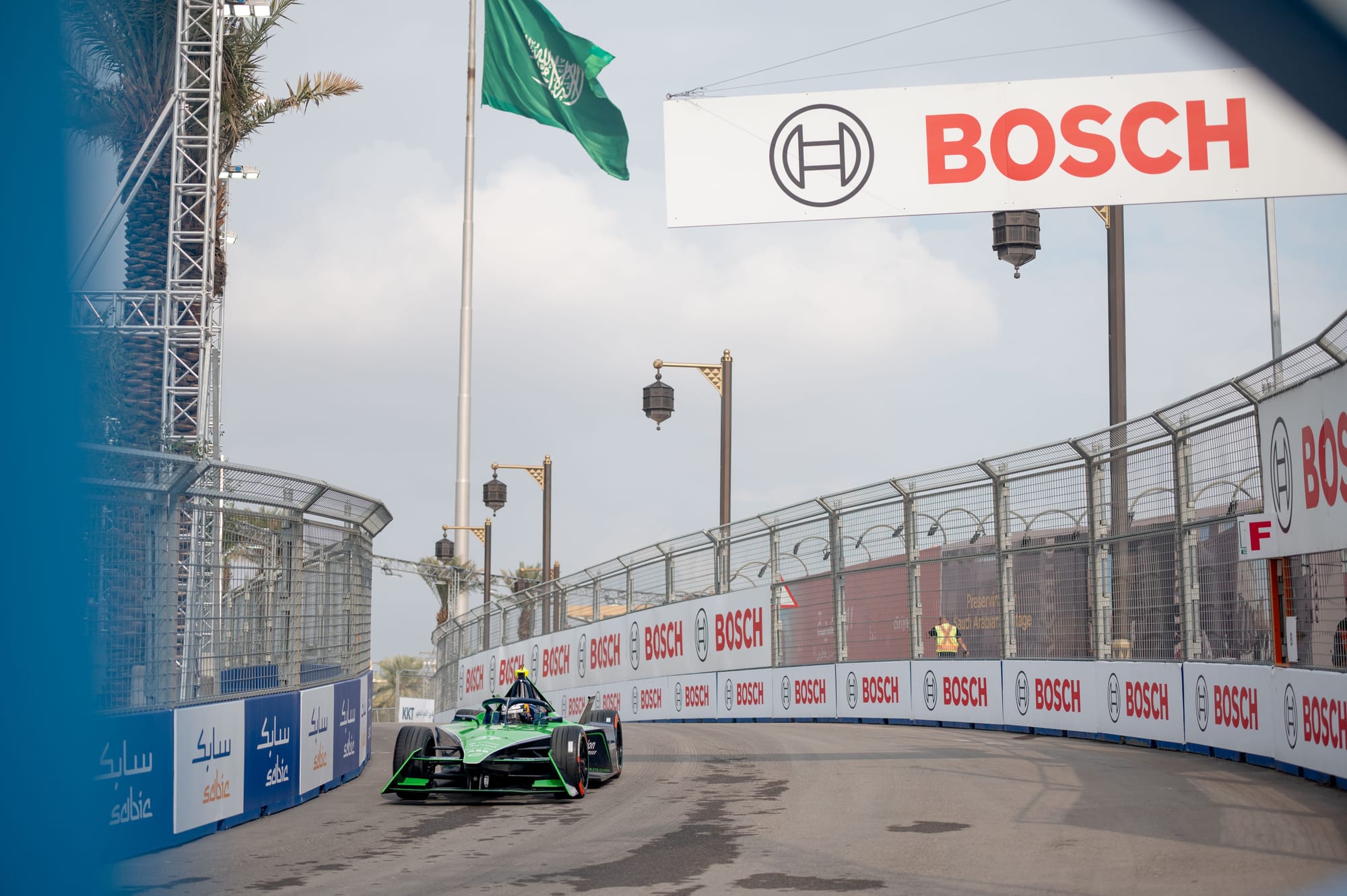
What has been announced in London may seem like not much at all in reality but most there, and on their way to the sixth running of the Diriyah E-Prix this week, may want to think again. Like the E-Prix itself, Electric 360 is here to stay and, again, the high likelihood is that Saudi Arabia’s interest in motorsport’s only all-electric world championship will only grow.
In an ever-changing Formula E schedule where few races are on the same weekend as the previous year, the Diriyah fixture is one of only three constants, alongside Mexico and Monaco, on the calendar with a firm set slot.
It is now a staple and, according to its promoter Carlo Boutagy from CBX, who has been integral to the success of the event, the continuity has come as a result of a central fulfilment of Saudi Arabia’s commitment to Formula E.
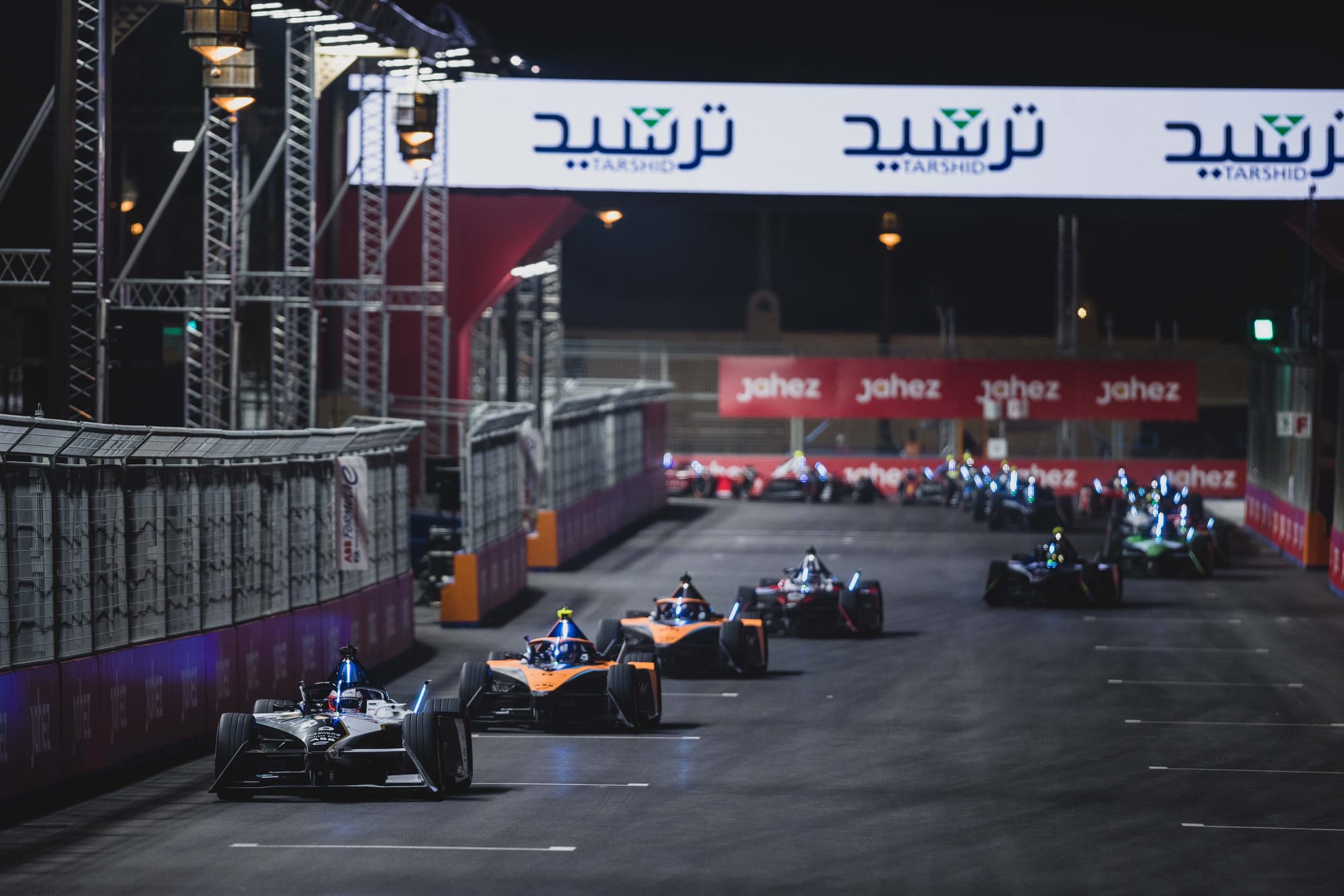
“The agreement is for a 10-year contract, which shows that the government of Saudi and the ministry of sports are serious about Vision 2030. So when they commit to something, they go all the way,” Boutagy told The Race. “We have a strong affinity with Formula E and it has become a regular sporting fixture here.”
Formula E isn’t yet a decade old but its history is heavy on boardroom fireworks. The tumultuous first season where Liberty saved it, the failed buyout by Agag in 2018, and the spiky and directionless Jamie Reigle years have all come and gone.
Now, the biggest questions are set to play out – not in a sporting theatre but in a business and commerce one. Should Formula E have a strong 18 months coming up, then expect those fireworks to start going off by their own accord.
[ad_2]
Source

